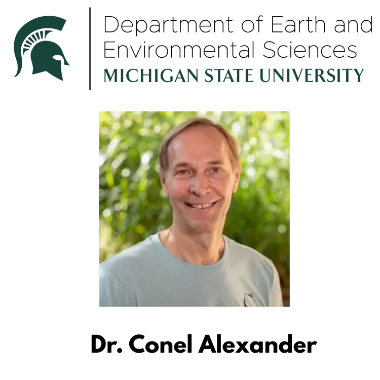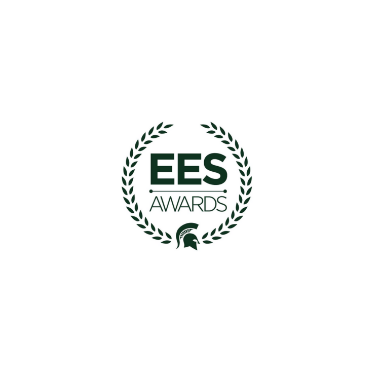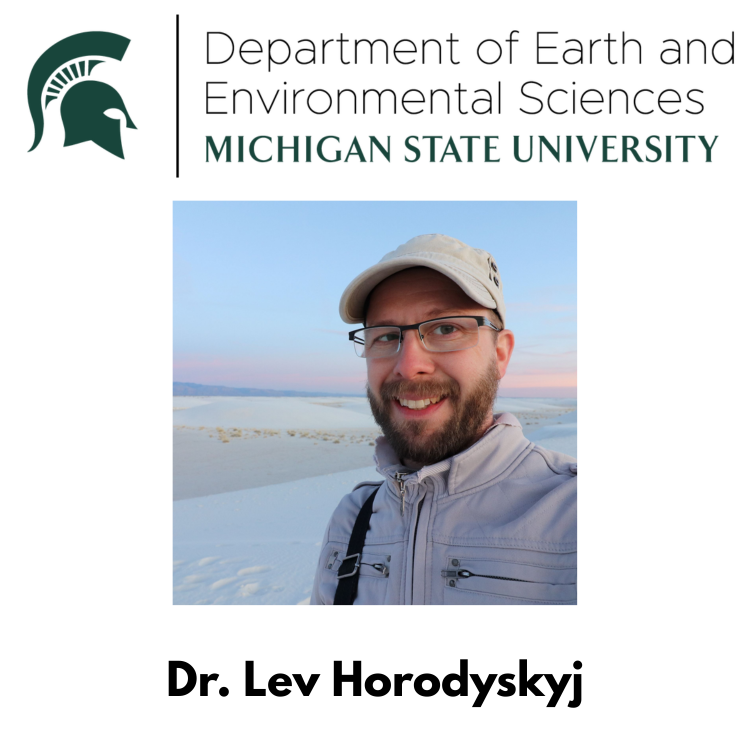EES Student Spotlight: Sophie Huss
Sophie Huss is a graduate research assistant that studies community engagement in resource extractive spaces and works with Dr. Julie Libarkin.
Sophie grew up camping and hiking with her dad, who was a civil engineer. He took Sophie on job sites as a kid and sparked her interest not just in STEM, but in the possibility of having a career outdoors. She originally went to college to study marine science but found a love for geoscience in one of her marine science classes during freshman year. “Earth and Environmental Science felt like a field where I could spend time outdoors, advocate for the planet, and make broader societal impacts through scientific work. I changed majors to geoscience (environmental focus) and that has led me to EES at MSU today.”
Sophie’s dissertation work seeks to build capacity for ethical engagement and practice in resource extractive spaces, particularly around decision-making in mining industries. She uses community-based participatory approaches to engage various stakeholder and rightsholder groups in Michigan to (1) better understand ethical understandings and values that exist within and between groups and (2) explore what it looks like to engage diverse stakeholders in co-creating curriculum to fill ethical training gaps for scientists and engineers. This collaborative work will result in the creation of an ethics curriculum for integration into MSU Biosystems Engineering coursework. This training will be made accessible and adaptable for other academic and professional settings. “By training engineers and scientists in a more holistic set of ethics, we hope the professional activities of these groups will result in the minimization of harms and maximization of benefits to impacted communities and the environment.”
“My favorite parts of the EES program are the flexible program requirements. The flexibility of the program has allowed me to participate in a variety of courses and training opportunities. By building my knowledge base in diverse fields, I am able to undertake a very interdisciplinary approach in my work that I would not otherwise be empowered to do. I think this aspect of my work is what really strengthens it and allows for broader and more meaningful societal impacts.”
“My advisor, Dr. Julie Libarkin, always centers life-work balance. In fact, she is the one who taught me to put life before work. She recognizes me as a human before I am a graduate student and encourages me to do the same with myself and others. By reframing how I view myself and my work this way, I am able to honor my own needs as a person first. That is what allows me to "show up" more meaningfully in both my life and work. She is all-around the most supportive mentor I have ever had and has allowed me to explore opportunities I would not otherwise have been able to. I credit her for much of my success in this program and my life.”
“The biggest lessons I will take away from this experience are 1) to be gentle with myself, 2) always be transparent, and 3) always center community voices and societal impacts in my work. As graduate students, the culture of academia can cause us to put an unreasonable amount of pressure on ourselves. When we do this, our mental and physical health declines and negatively impacts our personal life and work. This was my experience in a previous graduate program. My current advisor has helped me release some of the pressure I have been conditioned to place on myself. Prioritizing balance and honoring my needs has greatly improved my overall health and allowed me to do more meaningful work. A big part of this is being transparent. I tend to be more independent when it comes to work and have struggled to ask for help in the past. My experience in this program has taught me to always reach out and be honest about issues as soon as they come up. This is especially critical when working with communities. Centering community voice is one of the biggest lessons I will take away from my experience in Julie's lab. The traditional academic model views "expertise" very narrowly which results in the exclusion of non-academic voices and thus minimization of relevant broader societal impacts. By 1) including and empowering community voices and non-academic expertise and 2) allocating our knowledge and resources to societal causes, we can move toward an academy that serves everyone rather than the interests of a select few.”
Sophie has explored many possibilities for careers post-Ph.D. Building skillsets in alignment with these different career options and building relationships with folks within and across various fields has helped her expand her horizons and position her for success in the future. “This has been incredibly rewarding and will continue to help me as I progress through my education and career. Regardless of what path I take, I think that moving forward what will serve me most of all is knowing my values and responsibilities and acting in alignment with those.”
When asked What would you say to other students considering this program, her response was: “This applies to any graduate program, but I would say to keep an open mind and always advocate for yourself. Build a strong support system - when the work gets challenging (and it will), your support system is what will keep you going.”



